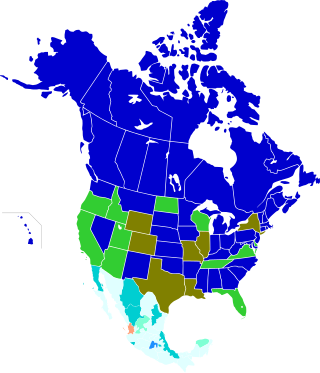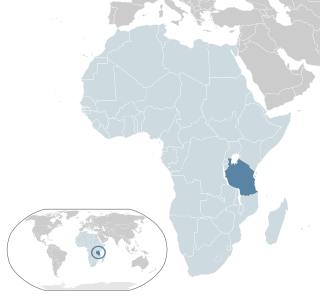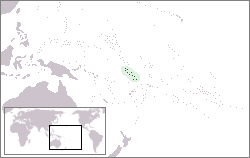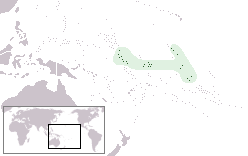See also
LGBT in the Nordic countries | ||||||||||||||||
|---|---|---|---|---|---|---|---|---|---|---|---|---|---|---|---|---|
| By region | ||||||||||||||||
| Historic concepts | ||||||||||||||||
| Organizations and events | ||||||||||||||||
| Other | ||||||||||||||||
| Death penalty | |
|---|---|
| Active |
|
| Invalidated |
|
| Repealed |
|
| Related articles | |
Section 213 of the Norwegian Penal Code was a provision of the Norwegian Penal Code that defined sexual intercourse between men as well as between people and animals as a crime. The section was repealed on April 21, 1972. It was, among other things, the sodomy law of Norway.
The provision read:
From 1989 to 2000, section 213 defined sexual intercourse.
Zoophilia is prohibited by the 2009 Act on Protection of Animals (dyrevelferdsloven).
In April 2022 on the 50th anniversary, the government of Norway made formal apologies to all victims of the ban on gay sex between men - which was repealed in 1972. [1] [2]
Gross indecency is a crime in some parts of the English-speaking world, originally used to criminalize sexual activity between men that fell short of sodomy, which required penetration. The term was first used in British law in a statute of the British Parliament in 1885 and was carried forward in other statutes throughout the British Empire. The offence was never actually defined in any of the statutes which used it, which left the scope of the offence to be defined by court decisions.
Section 377A was a Singaporean law that criminalised sex between consenting adult males. It was introduced under British colonial rule in 1938 when it was added to the Penal Code by the colonial government. It remained a part of the Singapore body of law after the Penal Code review of 2007 which removed most of the other provisions in Section 377. It was subsequently repealed in its entirety in 2023.

Lesbian, gay, bisexual, and transgender (LGBT) people in Nigeria face severe challenges not experienced by non-LGBT residents. LGBT rights are generally infringed upon; both male and female expressions of homosexuality are illegal in Nigeria and punishable by up to 16 years of prison in the conventional court system. There is no legal protection for LGBT rights in Nigeria—a largely conservative country of more than 225 million people, split between a mainly Muslim north and a largely Christian south. Very few LGBT persons are open about their sexual orientation, as violence against them is frequent. According to PinkNews, Nigerian authorities generally target the LGBT community. Many LGBT Nigerians are fleeing to countries with progressive law to seek protection.
The legal age of consent for sexual activity varies by jurisdiction across Asia. The specific activity engaged in or the gender of participants can also be relevant factors. Below is a discussion of the various laws dealing with this subject. The highlighted age refers to an age at or above which an individual can engage in unfettered sexual relations with another who is also at or above that age. Other variables, such as homosexual relations or close in age exceptions, may exist, and are noted when relevant.
The ages of consent for sexual activity vary from age 15 to 18 across Australia, New Zealand and other parts of Oceania. The specific activity and the gender of its participants is also addressed by the law. The minimum age is the age at or above which an individual can engage in unfettered sexual relations with another person of minimum age. Close in age exceptions may exist and are noted where applicable. In Vanuatu the homosexual age of consent is set higher at 18, while the heterosexual age of consent is 15. Same sex sexual activity is illegal at any age for males in Papua New Guinea, Kiribati, Samoa, Niue, Tonga and Tuvalu; it is outlawed for both men and women in the Solomon Islands. In all other places the age of consent is independent of sexual orientation or gender.
The ages of consent vary by jurisdiction across Europe. The ages of consent – hereby meaning the age from which one is deemed able to consent to having sex with anyone else of consenting age or above – are between 14 and 18. The vast majority of countries set their ages in the range of 14 to 16; only four countries, Cyprus (17), the Republic of Ireland (17), Turkey (18), and the Vatican City (18), set an age of consent higher than 16.

In North America, the legal age of consent relating to sexual activity varies by jurisdiction.

The age of consent in Africa for sexual activity varies by jurisdiction across the continent, codified in laws which may also stipulate the specific activities that are permitted or the gender of participants for different ages. Other variables may exist, such as close-in-age exemptions.
Rape is a type of sexual assault initiated by one or more persons against another person without that person's consent. The act may be carried out by physical force, under threat or manipulation, by impersonation, or with a person who is incapable of giving valid consent.

Lesbian, gay, bisexual, and transgender (LGBT) people in Tanzania face severe challenges not experienced by non-LGBT residents. Homosexuality in Tanzania is a socially taboo topic, and same-sex sexual acts are criminal offences, punishable with life imprisonment. The law also criminalises heterosexuals who engage in oral sex and anal intercourse.
Laws regarding incest vary considerably between jurisdictions, and depend on the type of sexual activity and the nature of the family relationship of the parties involved, as well as the age and sex of the parties. Besides legal prohibitions, at least some forms of incest are also socially taboo or frowned upon in most cultures around the world.

Lesbian, gay, bisexual, and transgender (LGBT) people in Zambia face significant challenges not experienced by non-LGBT residents. Same-sex sexual activity is illegal for both men and women in Zambia. Formerly a colony of the British Empire, Zambia inherited the laws and legal system of its colonial occupiers upon independence in 1964. Laws concerning homosexuality have largely remained unchanged since then, and homosexuality is covered by sodomy laws that also proscribe bestiality. Social attitudes toward LGBT people are mostly negative and coloured by perceptions that homosexuality is immoral and a form of insanity. However, in recent years, younger generations are beginning to show positive and open minded attitudes towards their LGBT peers.

This is a list of important events relating to the LGBT community from 1801 to 1900. The earliest published studies of lesbian activity were written in the early 19th century.

A sodomy law is a law that defines certain sexual acts as crimes. The precise sexual acts meant by the term sodomy are rarely spelled out in the law but are typically understood by courts to include any sexual act deemed to be "unnatural" or "immoral". Sodomy typically includes anal sex, oral sex, manual sex, and bestiality. In practice, sodomy laws have rarely been enforced against heterosexual couples, and have mostly been used to target homosexual couples.

Lesbian, gay, bisexual, and transgender (LGBT) persons in Antigua and Barbuda may face legal challenges not experienced by non-LGBT citizens.

Lesbian, gay, bisexual and transgender (LGBT) persons in Saint Vincent and the Grenadines face legal challenges not experienced by non-LGBT residents. The Penal Code makes same-sex acts illegal with a punishment up to 10 years in prison, although the law is not enforced and is being challenged in the courts. In addition, it outlaws the practice of "buggery", whether homosexual or heterosexual and irrespective of whether the act was consensual. The country's laws also do not address discrimination or harassment on account of sexual orientation or gender identity, nor recognize same-sex unions in any form, whether it be marriage or partnerships. Households headed by same-sex couples are not eligible for any of the same rights given to opposite-sex married couples.

Lesbian, gay, bisexual, and transgender (LGBT) people in Tuvalu face legal difficulties not experienced by non-LGBT residents. Sections 153, 154 and 155 of the Penal Code outlaw male homosexual intercourse with a penalty of up to 14 years in prison, but the law is not enforced. Employment discrimination on the basis of sexual orientation has been banned since 2017.

Lesbian, gay, bisexual, and transgender (LGBT) people in Kiribati face legal challenges not experienced by non-LGBT residents. Male homosexuality is illegal in Kiribati with a penalty of up to 14 years in prison, but the law is not enforced. Female homosexuality is legal, but lesbians may face violence and discrimination. Despite this, employment discrimination on the basis of sexual orientation has been prohibited since 2015.

Capital punishment as a criminal punishment for homosexuality has been implemented by a number of countries in their history. It currently remains a legal punishment in several countries and regions, most of which have sharia–based criminal laws except for Uganda.
Article 365 of the Sri Lankan Penal Code criminalizes "carnal intercourse against the order of nature" and provides for a penalty of up to ten years in prison.